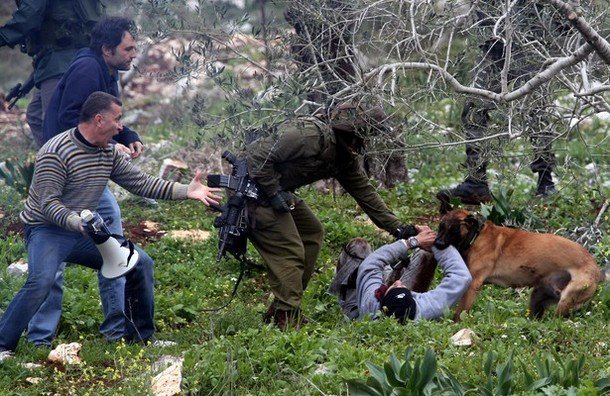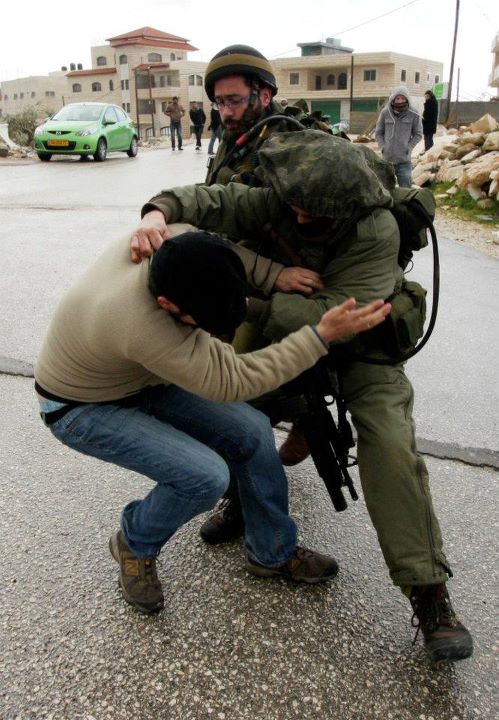Tag: Arrests
-
When teargas and rubber bullets are not enough: Israeli soldiers release the hounds on unarmed Palestinian protesters
17 March 2012 | Ni’lin Village In Kufur Qaddoum, clashes between Israeli Border Police officers who shot tear-gas projectiles and rubber-coated bullets and local youth who threw stones at the forces developed. Roughly 15 minutes later – in a scene that seemed as if it was taking place in the American South of the…
-
In Photos: Bethlehem met with rain of Israeli violence
by Mahmoud Zawahre 16 March 2012 | Al Ma’sara Popular Committee Today the weekly demo of Al-Ma’sara, near Bethlehem, was underway as dozens of Palestinians and Israelis demonstrated in the heavy rain against the wall in solidarity with Hana Shalabi . Israeli Occupartion Forces first attacked Mahmoud Zawahre, the coordinator Of Al-Ma’sara Popular Committee, tearing…
-
Israeli troops kill a Palestinian youth; Injures and arrest another
by Ghassan Bannoura 8 March 2012 | International Middle East Media Center Twenty-two years old Zakariay Abu Iram was killed while Mohamed Rashid, 18, was injured and arrested by Israeli troops as they attacked the southern West Bank village of Yatta on Thursday afternoon. Residents told IMEMC that Israeli troops stormed the village and tried…


